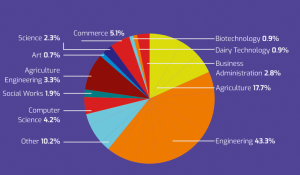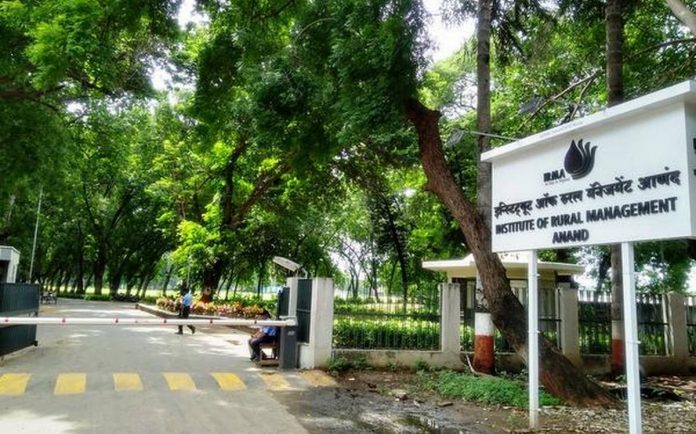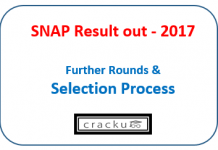Contents
Everything about MBA in Rural Management at IRMA | IRMA Placements, Cut-offs & Fee, Batch profile
Rural India accounts for around 70% of the population of our country. Almost half of India’s GDP is contributed by the rural economy, and hence, there is a need to study the socio-economic development of the rural sector of the country. There is a need for the youth to come up with effective solutions for the transformation of the Rural sector. There is a need to study the current scenario of agriculture in India, the lifestyle of the rural community, and many such key aspects of the rural economy. So how can one do that? How can one come up with effective solutions for the development of rural sectors? What is Rural Management? What are the best courses to pursue Rural Management? How are the career options in Rural Management? These are some of the common questions asked by someone who is interested in Rural Management. So, in this article, we will look at everything one needs to know about Rural Management, MBA in Rural Management, everything about the Institute of Rural Management Anand (IRMA), and the latest placement highlights of the college.
The first step towards getting admission into IRMA is taking the Common Admission Test (CAT) exam. IRMA also accepts the candidate’s XAT scores. Try checking out previous year’s papers of CAT to know about the level of questions that appear in the exam. Also, taking a free CAT online mock test will help the candidates in gauging their strengths and weaknesses.
Join CAT 2021 Live Booster Classes
Take 3 Free CAT 2021 Mock Tests in Latest Pattern
Introduction to Rural Management
- The economic development of a country like India is majorly dependent on the development of rural areas. Rural Management gives the chance to contribute towards the development and transformation of the rural areas of the country. Rural Management involves organizing, planning, managing cooperatives and related organizations within the rural areas and also in the field of agriculture. As agriculture contributes almost 50% of our GDP, to function as a thriving economy, students interested in the rural sector must know the advantages, opportunities, and importance of Rural Management.
- Out of over six crore MSMEs manufacturing over six thousand products, more than 50% operate in rural India. Also, there are many initiatives announced by the governments for the rural economy (such as raising MNREGA allocations, etc) that will increase investment, employment generation, consumption, among other things. These and many other factors prove that rural India’s future can be promising.
- Rural Management also involves the usage of advanced technology, and come up with appropriate strategies for effective solutions in the rural sector. It also involves managing and optimising agricultural resources effectively. To come up with solutions, one should study the current scenario of the agricultural operations, the lifestyle of the rural community, and many such key aspects concerning the rural sector. The right way to approach this is to pursue an MBA in Rural Management.
- The main purpose of the rural managers is to promote an eco-friendly, and sustainable socio-economic development of the people of rural areas through the management of their institutions and organizations.
MBA in Rural Management
- MBA in Rural Management is nothing but the application of management principles to the development of rural and agricultural sectors. It involves the application of MBA concepts in a way that’s apt for the rural sector. So, it refers to the planning, organizing, directing, controlling cooperatives, Agri-businesses of rural areas, and related fields. Students get the opportunity to develop rural areas through experiential learning and live projects. During their course, students get the opportunities to visit rural areas, work with the rural developmental organisations, stay in villages with the villagers as a part of their course work.
- MBA in Rural Management is a 2-year full-time management program focused on the above-mentioned areas. It encourages young minds who are willing to contribute to the growth of rural India and thus contribute to the development of the country. Pursuing an MBA in this field makes the student understand the challenges present in this sector and thereby use the management principles to come up with solutions to the problems. It also involves planning rural development programmes and implementing the same, improving rural livelihoods and coming up with a wide range of livelihood opportunities (apart from just agriculture) for the rural population.
- The program also includes learning advanced farming methodologies, various methods of cultivation, studying the core areas of the agricultural market, and implementation of the plans in real situations.
- The MBA program in Rural Management has been gaining high popularity in our country, particularly because close to 70% of our population lives in rural areas. Also, an internship during the program gives the students a hands-on experience of working in rural areas. Students can interact with the villagers and the farmers, learn about their needs, and come up with innovative ways to address their issues. The students also study the benefits of globalization & use innovative technology for the development the rural areas. Students will get the opportunity to transform rural lives, and that will lead to the improvement of the lives of less-privileged people of the rural areas.
- MBA in Rural Management trains a candidate to utilise and implement advanced techniques that will help in the growth of rural sectors. It teaches the student several on-field skills which will, in turn, help them in proper planning of rural development, handle complex situations, interact with the rural communities, understand their concerns and come up with the right solutions.
Enrol to 15 National Level CAT Mocks (With detailed VIDEO Solutions).
Why MBA in Rural Management?
MBA in Rural Management has become increasingly popular today. The rural areas occupy a major share of the geography of India. The progress of the economy depends on rural areas as well. As a result, the program offers rewarding career opportunities. Most large companies are looking for qualified professionals to cater to the marketing needs, finance and human resource needs of their rural management initiatives and programs. This has led to high demand for Rural Managers. And hence the MBA Programs educate and improve the skills of the students who are willing to transform the rural areas.
Scope of MBA in Rural Management
- Students would have a wide variety of job opportunities in the Rural development projects, Funding agencies, Government sector, NGOs, voluntary groups etc. The top recruiting companies for MBA in Rural Management students are Amul, Agro Tech Foods, CARE, PRADHAN, ICICI Bank, Parle Products, etc. Students can also get an opportunity to work with banks such as the NABARD.
- The major recruiting sectors include Social advisory and research agencies, Rural development projects by the Government, Rural-based voluntary agencies, Rural co-operative sectors, Agri-business enterprises, Marketing and management of Agri products, Consultancy sectors, micro-finance institutions, NGOs, International NGOs, Consumer product companies (like HUL, etc), Rural-based research facilities, Banks such as the NABARD, Grameen Bank, etc.
- Rural Development Officer, Business Development Manager, Research Officer, Sales Manager, National Sales Development officer, etc are some of the popular roles offered by companies and government organisations.
Therefore, we can understand the vast scope of this field, and every year more and more students are willing to pursue Rural Management.
Solve the previous year’s papers of CAT to acquaint yourself with the level of questions that appear in the exam.
Who should opt for Rural Management?
Those who have a keen interest in Rural development, Rural planning, Willingness to work for the development in rural areas, Agriculture, those who have empathy and good leadership skills, and who can come up with solutions to the problems faced in rural areas, etc., will find this the best career to pursue. Those who like interacting with the villagers, understand their problems, the rural culture, their ethos and their need for development will find this career extremely fulfilling.
The Institute of Rural Management, Anand (IRMA) is considered one of the best colleges for an MBA in Rural Management. The Institute of Rural Management, Anand (IRMA) initiated the first such programme in response to the necessity for management professionals in the rural sector. Today the program has become increasingly popular.
The Institute of Rural Management Anand (IRMA)
The Institute of Rural Management Anand (IRMA) was founded by Dr. Verghese Kurien – fondly known as the father of the White Revolution in India – in 1979. His professional management and governance were the key contributors for the success of the White Revolution, and IRMA was set up to replicate these skills for the underserved sector. Doing so requires utmost commitment, perseverance and dedication. And IRMA’s programmes have been designed in a manner that exemplifies these virtues.
Programs offered
- Post Graduate Diploma in Management (Rural Management) – the PGDM(RM): IRMA’s journey started with the flagship Post Graduate Diploma in Management (Rural Management) – the PGDM (RM) – which is the two-year full-time MBA Program.
- The Fellowship Programme in Management (Rural Management) – the FPM(RM) was introduced to stimulate academic and research work and develop scholars and teachers in the domain of Rural Management.
- The 15-month Post Graduate Diploma in Management (Rural Management-Executive) – the PGDM(RM-X) – was introduced specially for executives with work experience who want to upskill and take their careers to the next level.
The values and culture of IRMA are reflected in the pedagogy of its programmes. The fieldwork component therein is crucial as it introduces the participants to the rural realities but more importantly, it makes them a part of the said realities. This exposure to the grassroots informs the IRMA graduates and they not only stand tall but also stand out from their peers elsewhere.
Research & Consultancy
Apart from its core activities in teaching and training, IRMA also offers research and consulting. These are predominantly academic in nature and seek growth in order to expand the body of knowledge while also providing relevant end-to-end solutions for rural governance and development. IRMA’s strong research and consultancy component enables its active faculty to monitor and contribute to the changing realities of the rural environment. As a result, organizations of national and international repute regularly collaborate with the institute to offer support for research on issues including innovations, gender-related practices, sustainable development, energy and the environment, urban-rural dynamics, leadership, and education, with a strong rural emphasis.
Management Development Programmes
Apart from its academic commitments, IRMA is known for its well-designed Management Development Programmes (MDPs), as part of its contribution to supporting management education. Each programme is meticulously structured to ensure high levels of efficiency while offering unique learning propositions to participants, equipping them with current as well as evolving concepts, perspectives, and practices within the context of rural management. Over the years, executives and managers have been supported by open as well as tailored short and long-term MDPs throughout companies including cooperatives, non-profit agencies, governmental, and semi-governmental organizations engaging in rural development. Executive participation in these MDPs is high. Each programme is meticulously structured to ensure high levels of efficiency while offering unique learning propositions to participants, equipping them with current as well as evolving concepts, perspectives, and practices within the context of rural management. Some of the takeaways from the MDPs include a sound knowledge base, collaboratively worked out heightened analyses, and exposure to varied perspectives of a well-informed peer group.
Eligibility
The eligibility for the PGDM-Rural Management at IRMA is as follows:
- A Graduate from any discipline, with a minimum of 15 years of education is eligible to apply. 50% or above (45% or above for SC/ST/differently able person) aggregate marks or equivalent CGPA at the graduation level. (The percentage of aggregate marks is to be calculated as per the practice followed by the concerned university or institution).
- Students in the final year of graduation can also apply.
- There is no age limit for admission to the PGDM (RM) Program of IRMA.
Take 3 Free Mock Tests for CAT
IRMA Cut-offs & Fees Structure
The Cut-offs are usually around 80+%ile.
The Fees for the 2-year full-time PGDM-RM Program is Rs. 14 Lakhs.
(Scholarships are also provided to deserving candidates through various schemes and scholarships.)
IRMA Placements
Let us take a look at the key placement highlights at IRMA.
IRMA Placement Highlights
IRMA Placements 2021: IRMA has recorded 100% placements with the highest package of Rs. 19 lakh. The Institute of Rural Management Anand (IRMA) has completed final placements for the 40th batch (2019-21) of its flagship Post Graduate Diploma in Management (Rural Management) at IRMA – the PGDM(RM). (Due to the on-going pandemic IRMA conducted the entire placements process virtually where recruiters and students participated in an online mode).
- The placements process for the batch of 215 students began in February 2021, and IRMA secured 100% placements again, despite an economically tough year.
- 105 organizations participated in the placement process making more than 330 offers. The highest package offered was Rs. 19 lakh per annum, and the lowest package was Rs. 5.4 lakhs per annum, across organizations ranging from not-for-profit to for-profit. The median package was Rs. 10.35 lakh per annum and the mean package was Rs. 10.81 lakh. A diverse set of recruiters participated in the campus placement process which included dairy cooperatives, banks, NBFCs, agribusinesses, NGOs and public sector organizations. Out of 215 students in the batch, 27 secured Pre-placement Offers (PPO) based on the work done in internships and live projects. One of the PPOs was an international offer with Mahyco International in the APAC region.
- An important highlight of placements this year has been the active participation of several start-ups. While a majority of the positions were in sales and marketing functions, this year also saw organizations recruiting students for mainstream finance, supply chain and procurement roles as well.
- A total of 28 students took up offers made by NGOs, Government and Development agencies and CSR foundations. Organizations including Vedanta CSR, NTPC CSR, Brooke India, Foundation for Development of Rural Value Chains (FDRVC), BAIF Development Research Foundation, BRLPS – JEEVIKA, Panchayati Raj-Govt. of Telangana, and Access Livelihoods Consulting (ALC) were other prominent recruiters.
- Agribusiness corporations including ITC Agribusiness Division, Dabur India, Godrej Agrovet, Coromandel International, Adani Wilmar, Cargill, among others, participated in the placements. Recruiters from the retail sector included More Retail and Reliance Retail. From the domain of Consulting, Grant Thornton Bharat LLP, CMS, and Technopak Advisors were the prominent recruiters. From the AgTech domain, Reliance Jio, Grow Indigo, DeHaat, Intello Labs, among others, participated.
- From the Banking, Financial Services and Insurance (BFSI) domain, ICICI Bank, IDFC First Bank, Axis Bank, Fullerton, Vivriti Capital, Northern Arc Capital, Navadhan Capital, Caspian Impact Investments, SBI General Insurance, IFFCO Tokio General Insurance, Arth Rural, along with small finance banks like Utkarsh SFB, ESAF SFB, participated.
|
Particulars |
Amount (Rs. lakhs per annum) |
|
Highest |
19.00 |
|
Mean |
10.76 |
|
Median |
10.23 |
|
Average – Corporate Sector |
11.17 |
|
Average – Development Sector |
8.43 |
|
Top 10 Percentile Average |
16.58 |
|
First Quartile Average (Top 25% of the batch) |
14.55 |
|
Upper Half Average (Top 50% of the batch) |
13.05 |
|
Lower Half Average (Bottom 50% of the batch) |
8.47 |
Summer Internship Highlights
Summer Internship Segment at IRMA witnessed a boom with 391 internship offers. The Institute of Rural Management Anand conducted Summer Internship Segment (SIS) 2021 of the 41st batch of IRMA’s flagship Program Post-Graduate Diploma in Management (Rural Management) or the PGDM (RM). Due to the ongoing pandemic the entire placement process was conducted virtually.
A total of 252 students to be placed through the institute’s Campus Placements process in five days. A total of 391 internship offers from the 113 recruiters, with new 39 recruitment partners. The average stipend was recorded as INR 63,015, by the corporate sector organizations. The highest stipend offered in this placement Segment saw a massive leap of INR 2 lakh; the median stipend remains the same as the past year and stands at Rs. 50000. As an indication of the increased engagement of business as well as development sector organizations with the rural.
Gujarat Cooperative Milk Marketing Federation (Amul), with 31 offers, was the largest recruiter this year. Verka (Punjab Milkfed), DudhSagar Dairy Cooperative (Mehsana) and Shreeja Mahila Milk Producer Company Limited were some of the recruiters from the Collectives and Cooperatives sector. The major Development sector recruiters were Farmscape Support Networks Foundation, Madhya Pradesh Shyama Prasad Mukherjee Rurban Mission, and Aga Khan Rural Support Programme (India). Multinational/National Agribusiness and Rural Marketing corporations such as ITC Agribusiness Division, Emami Agrotech, Emami Ltd, Godrej Agrovet, Burger King India Limited, Grow Indigo, Crompton, Ninjacart, Mapro Foods Pvt Ltd. etc. also offered internships. From the FMCG and Retail sector More Retail, Big Basket, Delightful Gourmet Pvt. Ltd. (Licious), etc., recruited from IRMA. BFSI companies such as Sarvagram Fincare, Yes Bank, DBS India Limited, NBHC, Pahaal Financial Services Pvt. Ltd, Samunnati Financial Intermediation and Services Private Limited, and several other small finance banks also took part in the process. From the CSR and Social business sector, we had organizations like Cummins, Vedanta Ltd, Srinivasan Service Trust (TVS Motor Company) Ltd, TCSRD and UNICEF coming in for recruitment. From the Consulting sector, Grant Thorton, MicroSave Consulting, APCO Worldwide India Pvt Ltd were the major recruiters for this year’s summer internship segment.
Sector-wise Stipend Breakup SIS 2021
|
Sector |
Students placed |
Average Stipend (INR) |
| Agribusiness/FMCG & Retail |
106 |
70,717 |
| BFSI |
17 |
42,353 |
| Collectives & Co-Operatives |
46 |
41,130 |
| Consultancy & Technology |
32 |
27,000 |
| CSR & Social Business |
20 |
53,600 |
| Government Agencies |
20 |
34,000 |
| Non – Government Organization |
11 |
60,273 |
| Total |
252 |
52,885 |
IRMA Batch Profile
The Class of 2021 was a perfect blend of fresh graduates and experienced professionals. The batch comprised of students from diverse backgrounds.
- Percentage of the batch with work-ex: 50.7%
- Percentage of the batch without work-ex: 49.3%
Work experience of the batch (in months) and Gender Ratio:

Education Background of the batch:

IRMA Admission Process
The candidates seeking admission to the college have to apply separately on the official website of IRMA. The total number of seats available for the PGDM (RM) program is 240. The admission process of the PGDM-RM Program is as follows:
- IRMA will shortlist candidates on the basis of the candidate’s CAT / XAT scores. (If candidates provide both scores (CAT/XAT), the higher score will be considered for the selection process).
- Shortlisted candidates will be called for the selection process at IRMA where they will have to take the IRMA Social Awareness Test (IRMASAT), Group Activity and Personal Interview.
How to prepare for IRMASAT?
The Institute of Rural Management, Anand (IRMA) provides a Sample Test Paper for the IRMASAT exam. The Sample Test Paper gives some examples about the nature of questions in different sections of the Written Test. The candidates have to prepare accordingly. There is no further guidance available by the college in this regard.
Profile-based selection
As per the info. available on the official website, for the PGDM (RM) admissions, IRMA will be giving two types of calls to the prospective candidates:
1. Merit-based Calls: Category wise cut-offs (CAT / XAT percentile scores) will be decided by the Admissions Committee for shortlisting applicants for IRMASAT and GA and PI process.
2. Profile-cum-merit based Calls: The applicant will be considered under the profile-based calls ONLY if the applicant is graduated from one of the following three disciplines:
1. Veterinary,
2. Agriculture (B.Sc., B. Tech, Engineering etc.) and
3. Dairy Technology
Shortlisted candidates will be called for the selection process at IRMA where they will have to take the IRMA Social Awareness Test (IRMASAT), Group Activity and Personal Interview. (due to the pandemic situation the IRMASAT Exam would be held online. Candidates can find the details of the same on the official website of IRMA).
IRMA Application: Important Dates
The important application dates for the PGDM-RM 2022-24 Batch are as follows:
| Event | Tentative dates |
| Online Application begins | 3rd week of October 2021 |
| Online Application closes | Jan/Feb 2022 |
| IRMASAT Exam | 2nd week of Feb, 2022 |
| Personal Interview | 4th week of Feb, 2022 |
| Course Begins | June 2022 |
You can also join our Telegram group for MBA Aspirants for important MBA updates. We will be updating you when the forms for IRMA are released.
Join Cracku MBA Preparation Telegram Channel




![CAT Averages Questions PDF [Important Questions] CAT AVERAGES Questions PDF](https://cracku.in/blog/wp-content/uploads/2022/07/CAT-AVERAGES-Questions-PDF-218x150.png)
